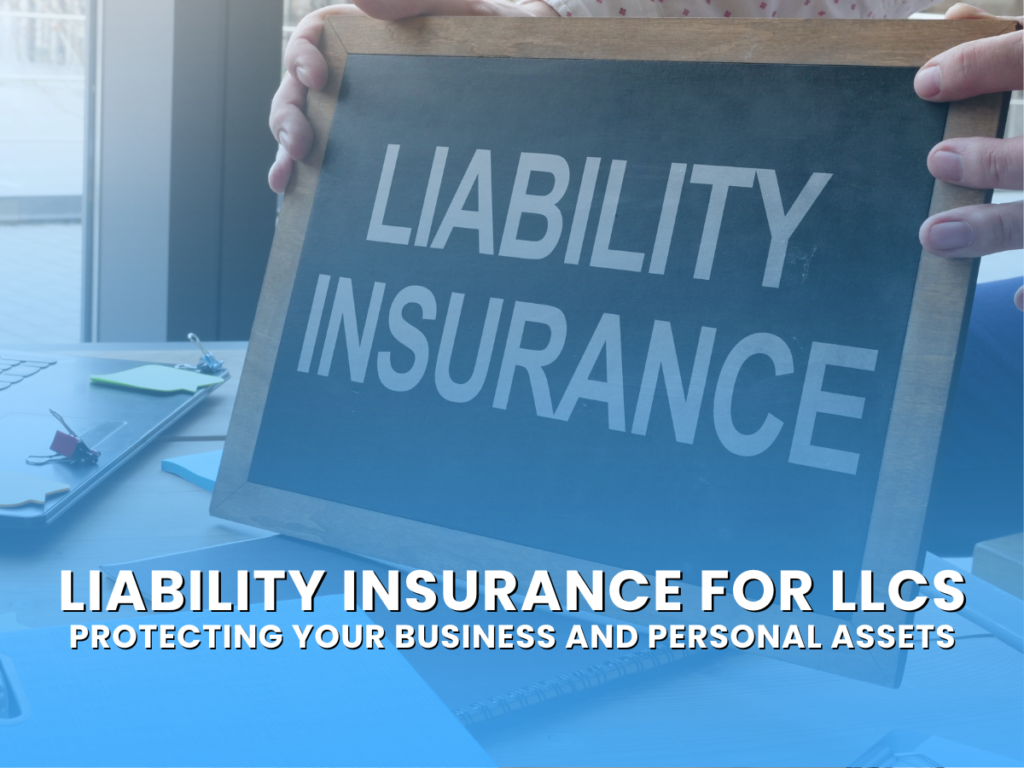Ensuring the financial and legal protection of an LLC is a critical concern for business owners. Liability insurance for LLCs provides a safety net, shielding personal assets and maintaining corporate integrity. This comprehensive guide delves into the intricacies of liability insurance for LLCs, covering essential aspects of accounting, finance, and legal protection.
Introduction
Limited Liability Companies (LLCs) offer a unique structure that combines the flexibility of a partnership with the protection of corporate liability. However, without proper liability insurance, LLC members can still face significant risks. This article explores the need for liability insurance for LLCs, the implications for accounting and finance, and the broader legal framework that supports limited liability protection.
Understanding Limited Liability Protection
What Does Limited Liability Company Mean?
An LLC is a business structure where the owners are not personally liable for the company’s debts or liabilities. This means that the owners’ personal assets, such as homes or personal bank accounts, are typically protected from business creditors.
Legal Liability in LLCs
While LLCs offer limited liability protection, this does not eliminate all risks. Legal liability refers to the responsibility a business has for its actions or inactions. Liability insurance for LLCs helps cover legal costs and settlements, ensuring that the business can survive financially during disputes.
The Importance of Liability Insurance for LLCs
Protecting Personal Assets
One of the primary benefits of liability insurance is the protection of personal assets. Without insurance, members’ personal finances can be at risk if the business faces legal claims or lawsuits.
Ensuring Business Continuity
Liability insurance ensures that an LLC can continue operating even after facing significant legal challenges. It provides financial support for legal fees, settlements, and other related costs, allowing the business to recover and move forward.
Meeting Legal Requirements
In many jurisdictions, having liability insurance is a legal requirement for operating an LLC. This ensures that businesses have the necessary financial backing to address potential legal claims.
Accounting and Finance Implications
Cost of Liability Insurance
The cost of liability insurance varies based on the size of the business, industry, and level of coverage required. It is essential to factor this into the LLC’s budget to ensure adequate coverage without overburdening the financial resources.
Tax Deductions
Liability insurance premiums are often tax-deductible as a business expense. This can provide significant financial relief, reducing the overall tax burden on the LLC.
Financial Planning
Incorporating liability insurance into the financial planning of an LLC is crucial. It helps in forecasting expenses and ensuring that there are sufficient funds to cover premiums and potential deductibles.
Types of Liability Insurance for LLCs
General Liability Insurance
This provides coverage for common business risks, including bodily injury, property damage, and advertising injury. It is a fundamental type of insurance for most LLCs.
Professional Liability Insurance
Also known as errors and omissions insurance, this covers claims related to professional services, such as negligence or failure to deliver services as promised.
Product Liability Insurance
For businesses that manufacture or sell products, this insurance covers claims related to product defects that cause harm or injury.
Case Studies and Examples
LLC Examples with Strong Liability Insurance
- Tech Startups: These companies often face significant risks related to data breaches and intellectual property disputes. Having robust liability insurance helps mitigate these risks.
- Construction Firms: Liability insurance is crucial for covering on-site accidents and property damage, ensuring that the business can handle claims without severe financial strain.
Legal Considerations and Compliance for Liability Insurance for LLCs
Require LLC Member to Sign Release of Liabilities
In some cases, it may be necessary to have LLC members sign a release of liabilities to protect the business from internal disputes. This ensures clarity on the extent of liability protection and the members’ responsibilities.
Can People Sue LLC Owner for Personal Assets?
While LLCs provide limited liability protection, certain circumstances can lead to personal liability. For instance, if an owner personally guarantees a loan or engages in fraudulent activities, they can be held personally accountable.
LLC Entitlement Definition
Understanding the rights and entitlements of LLC members is crucial. This includes profit distribution, decision-making authority, and liability limits.
Practical Steps for Liability Insurance for LLCs
Choosing the Right Insurance Policy
Selecting an appropriate liability insurance policy involves assessing the business’s risks and consulting with insurance professionals to tailor coverage to specific needs.
Regular Policy Review
Regularly reviewing the insurance policy ensures that it remains adequate as the business grows and evolves. This includes adjusting coverage levels and adding new types of insurance as necessary.
Educating Members
Ensuring that all LLC members understand the importance of liability insurance and the extent of their coverage helps in maintaining a unified approach to risk management.
FAQs
What does limited liability company mean?
A limited liability company (LLC) is a business structure where the owners are not personally liable for the company’s debts or liabilities, protecting their personal assets.
Can people sue LLC owners for personal assets?
Generally, LLC owners are protected from personal liability. However, personal assets can be at risk if the owner personally guarantees loans or engages in illegal activities.
Do LLCs need liability insurance?
Yes, liability insurance is crucial for LLCs to protect against legal claims and ensure business continuity.
What types of liability insurance are available for LLCs?
Common types include general liability insurance, professional liability insurance, and product liability insurance, each covering different risks.
How does liability insurance affect LLC accounting?
Liability insurance premiums are a tax-deductible business expense, which can reduce the LLC’s overall tax burden.
What is the role of liability insurance in financial planning for an LLC?
Incorporating liability insurance into financial planning ensures that the LLC has sufficient funds to cover premiums and potential deductibles, safeguarding against unforeseen legal costs.
Conclusion
Liability insurance for LLCs is not just a regulatory requirement but a strategic tool for safeguarding personal assets and ensuring business continuity. By understanding the types of insurance available, the cost implications, and the legal considerations, LLCs can make informed decisions that protect both the business and its owners. Regular reviews and educating members on the importance of liability insurance further strengthen this protective shield, enabling the LLC to thrive even in the face of legal challenges.



